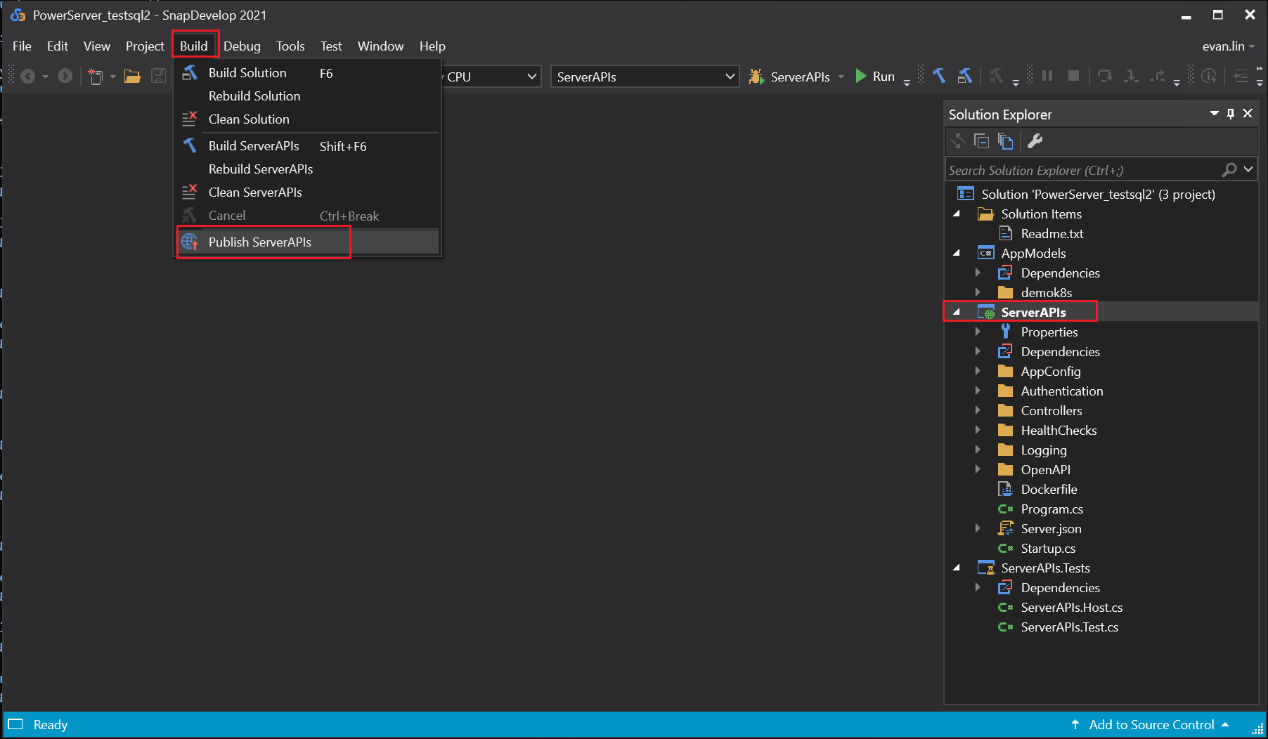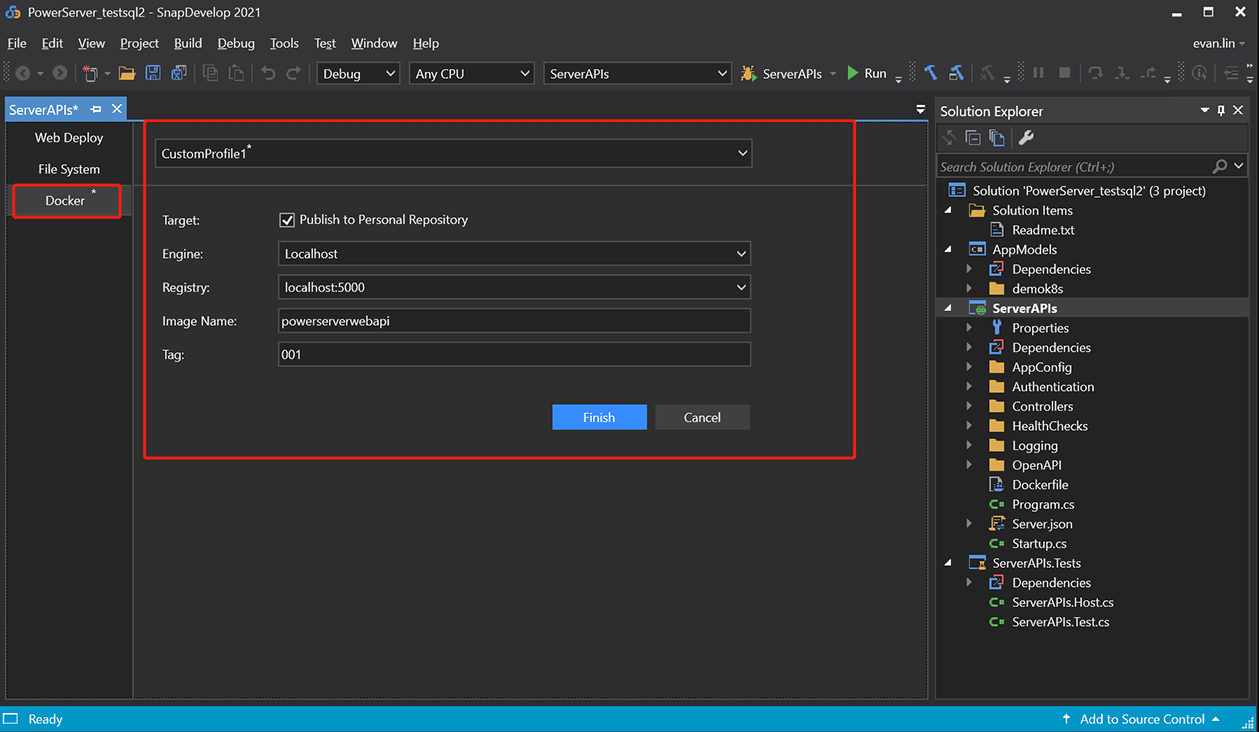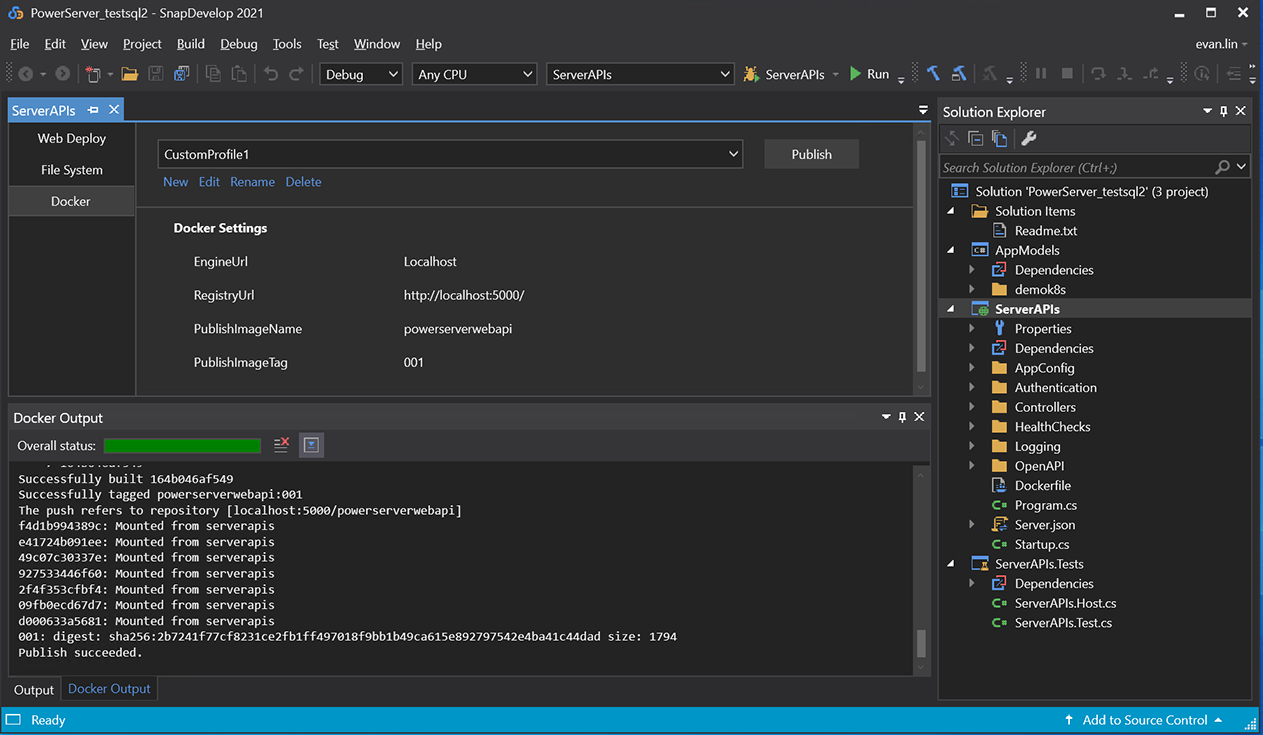This is to create a Docker container image that contains the PowerServer Web APIs.
This guide will show you how to build and publish the PowerServer Web APIs as a Docker container image in the SnapDevelop IDE.
Step 1: Open the PowerServer C# solution in SnapDevelop.
Click the Open C# Solution in SnapDevelop button in the toolbar to launch the PowerServer C# solution in SnapDevelop. Or go to the location where the PowerServer C# solution is generated (%username%\source\repos by default); and double click PowerServer_[appname].sln to launch the solution in SnapDevelop.
Step 2: Add docker support to the ServerAPIs project.
-
In the Solution Explorer, right click on the ServerAPIs project node, and select Add > Docker Support.
-
In the Add Dockerfile dialog, select the target OS: Linux or Windows, and click OK. The target OS indicates the platform where the docker container will run.
A file named Dockerfile is automatically created according to the selected OS and added under the ServerAPIs project. This file contains all the commands required for building a docker image appropriate for the selected OS.
Step 3: In the Solution Explorer, select the ServerAPIs project, and then select menu Build > Publish ServerAPIs.

Step 4: In the window that appears, select Docker, and then click Start to configure for publish.
-
Keep Publish to Personal Repository checked if you are connecting to your own repository. If the repository is owned by an organization, clear the checkbox, and enter the organization name.
-
In the Engine field, select localhost.
-
In the Registry field, specify to store the container image in the local repository.
-
In the Image Name field, enter a name for the container image you want to create.
-
In the Tag field, enter a tag, for example, enter 001 to indicate the image version.
-
Click Finish to start building the project as an image and publishing the image to the specified Docker Engine and docker registry.

Step 5: Check the Docker Output window and make sure the publish is successful.




